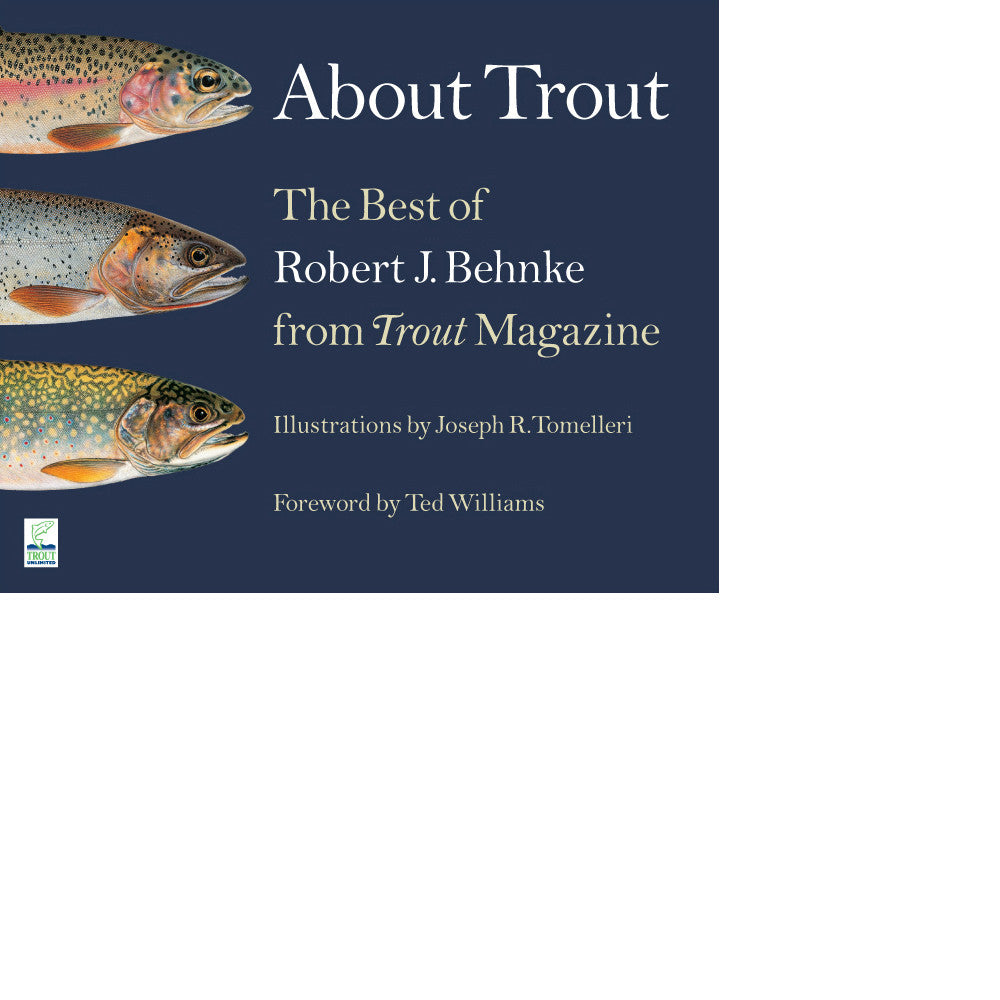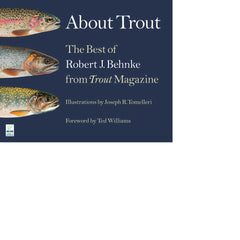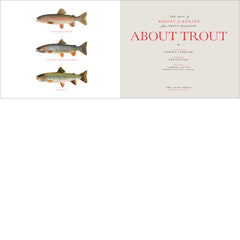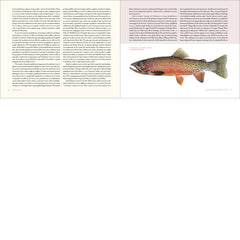




Author: Robert Behnke
Illustrator: Joseph R. Tomelleri
Publisher: The Lyons Press
Over the past 25 years, Robert J. Behnke has done more to inform modern anglers about the diversity and biology of native trout than any other writer. His influential quarterly column "About Trout" in Trout magazine began in 1983 and continues to this day bringing up-to-date news on trout and salmon conservation to Trout Unlimited’s large and active membership.
Collected here for the first time are Behnke's most informative articles. From species descriptions and conservation commentary to the history and lore of fisheries management, readers will find a wealth of clearly written and entertaining text from the world's leading expert on trout and salmon. Each article includes new commentary by Behnke that updates and expands on his original text, tying together his more than 50 years of experience as a scientist and advocate for conservation.
Illuminating Behnke's text are over 30 stunning illustrations of native trout and salmon by Joseph R. Tomelleri, some of which are reproduced here for the first time.
From Arctic char and Dolly Varden of northern Alaska, brook trout and Atlantic salon of Maine, cutthroat of the Great Basin, Apache trout of the desert Southwest, to rare Mexican trout of the Sierra Madre Occidental, readers will discover in this book a celebration of our most beautiful native gamefish.
“Shining from every page of this book is Behnke's love for these beautiful and complex works of evolution, his commitment to their conservation and recovery, and his rage at those who would mix, pollute, and waste their genes. He shows how our ceaseless game of musical chairs with species and subspecies has destroyed much of the grand diversity earth was blessed with, homogenizing it into muddy sameness. You will comprehend trout and salmon not just as lovely life forms and splendid quarry but as critical parts of complicated ecosystems. You will understand how they came about, how we have squandered them and, most important, how we can recover them.”
—From the Foreword by Ted Williams



